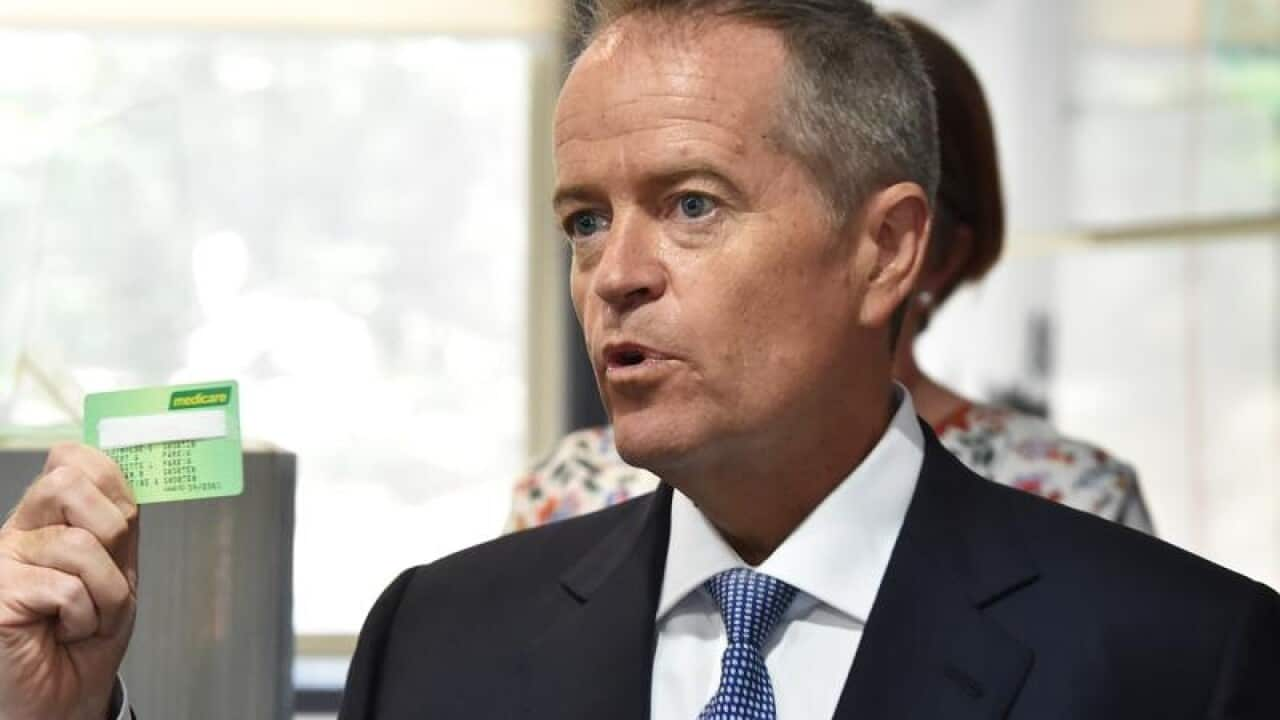Labor has attempted to hose down the coalition's claim there's a $6 billion shortfall in its promise to improve Medicare's coverage of cancer services.
"That claim is so wrong it's scary," shadow treasurer Chris Bowen told ABC Radio National on Monday.
Labor has pledged to spend $2.3 billion on its overall cancer plan if it wins the election, which includes making a new fully bulk-billed Medicare item available for some cancer consultations.
Health Minister Greg Hunt says Labor has not offered enough to cover the fees charged by cancer specialists for all 421 types of appointments covered by Medicare, based on the charges recommended by the Australian Medical Association.
That means some specialists could have their fees cut by up to 90 per cent, he argues, a prospect no Australian provider would accept.
"They have not funded what they've pretended to be delivering," Mr Hunt told reporters in Melbourne on Monday.
Ensuring specialists get the fees recommended for all of the appointments would cost $6.8 billion, which would require $5.7 billion more than Labor has allocated for the appointments, the minister said.
Prime Minister Scott Morrison joined the attack, saying Labor's cancer policy is now "around their ankles".
"Labor can't manage money which means they can't run the show," he told reporters in Melbourne.
But Mr Bowen says the coalition's figures don't reflect Labor's policy, which is about creating a new, bulk-billing Medicare item.
"Greg Hunt has based his scare-campaign, his blowout claims, on existing Medicare items. He just basically got the facts wrong," he said.
Labor leader Bill Shorten said specialists offering the Medicare item will also be reimbursed more than they otherwise would.
That means specialists who don't fully bulk-bill in an effort to rake in more cash with an out-of-pocket fee will face more competition from those who do.
"It is competition, friends - and competition is going to, I think, provide a better service," he told reporters in Melbourne.
Labor health spokeswoman Catherine King says the policy is estimated to raise the bulk-billing rate for cancer patients from 36 per cent to 80 per cent.
She said her party would work with specialists and the diagnostic imaging sector to get the measure right before it starts in 2020.
"We have got some work to do," she said.
Mr Hunt said his figures were sourced from the Department of Health.
The department said it did provide the data on request but has stressed it is not a costing of Labor's policy.
"The department does not cost opposition policies and has not received any request to do so," a department spokesperson told AAP.









